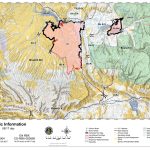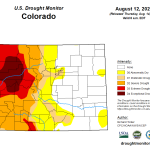Colorado lawmakers advance bill to redirect some wolf funding but kill effort to pause further reintroduction
The bill is one of many being considered under a special legislative session to respond to the funding impacts of Congress’ sweeping tax law
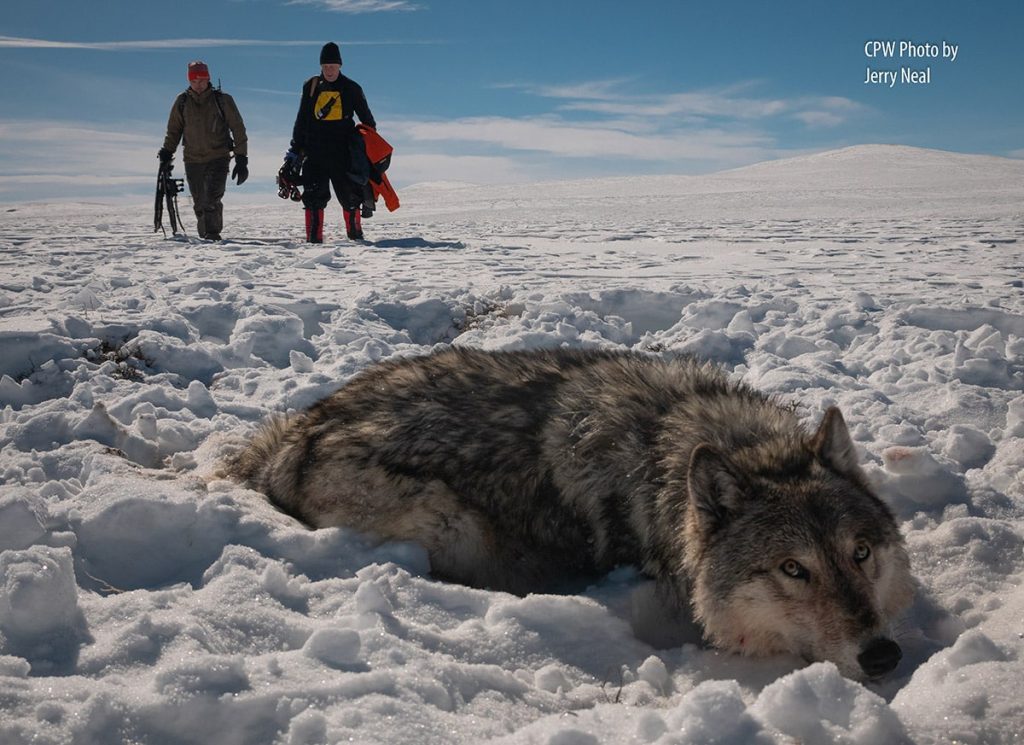
Jerry Neal/Colorado Parks and Wildlife
A panel of Colorado lawmakers on Thursday advanced a bill that would redirect some funding from the state’s wolf reintroduction program to health insurance subsidies, but stripped it of a provision that would’ve paused new wolf drops.
Senate Bill 5 was introduced by a bipartisan coalition of Western Slope lawmakers as part of the special legislative session that began on Thursday. Lawmakers are meeting mainly to respond to the impacts of the sweeping tax measure passed by congressional Republicans and signed by President Donald Trump on July 4.
After nearly three hours of testimony by supporters and opponents, lawmakers on the Senate State, Veterans and Military Affairs Committee voted 4-1 in favor of the bill. It now advances to the Senate Appropriations Committee, where it will need to again win approval before moving to the Senate floor.
Much of the wide-ranging testimony from supporters and opponents on Thursday morphed into a broader debate about the merits and pitfalls of the state’s reintroduction program, going beyond the special session’s primary objective, which is to close a nearly $800 million budget deficit.
Proponents of SB 5, however, say the measure is about finding solutions that are within the scope of the special session’s tasks, which include blunting an expected surge in insurance premiums next year after Congress’ tax law failed to include an extension of Affordable Care Act subsidies.
“We face an immediate budget challenge and health insurance affordability crisis, and this bill proposes to save a small amount of taxpayer dollars, wherever we can, to put that into something that can immediately be helpful for Coloradans,” said Sen. Dylan Roberts, D-Frisco, one of the bill’s prime sponsors.
SB 5 is also sponsored by Sen. Marc Catlin, R-Montrose, and Reps. Meghan Lukens, D-Steamboat Springs, and Matthew Martinez, D-Monte Vista.
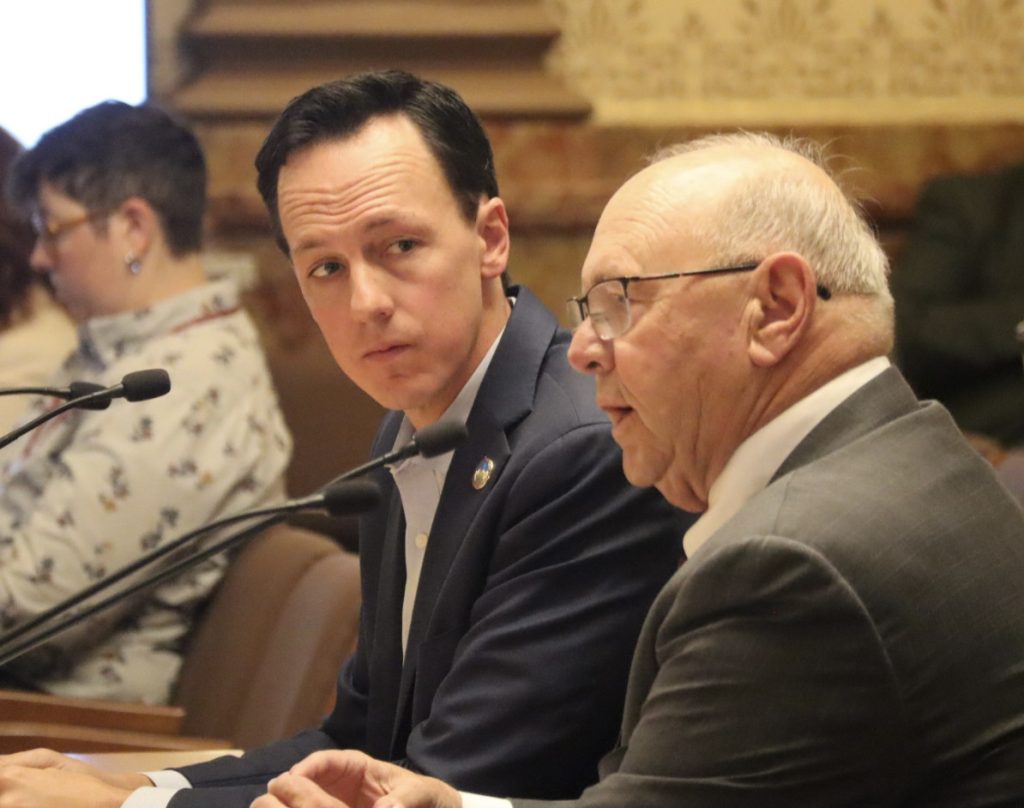
The bill redirects just over $264,000 of the $2.1 million budgeted this fiscal year for the wolf reintroduction program, funneling that money to the state’s Health Insurance Affordability Enterprise.
The enterprise fund supports measures such as the state’s reinsurance program, which helps insurers cover high-cost claims to mitigate large hikes in individual premiums, as well as OmniSalud, which provides insurance subsidies to non-citizens who may be undocumented.
The money that would be redirected from the wolf program, however, represents a sliver of the overall funding lawmakers are hoping to pump into the enterprise fund. Another bill being considered during the special session would funnel $100 million into the fund through an interest-free loan from the state’s unclaimed property trust fund.
The bill received criticism from some supporters of wolf reintroduction, who said it would do little to bring down health care costs while undermining state voters, who narrowly approved the program in 2020. They also said the funding that would be redirected would do nothing to solve the state’s multimillion-dollar budget shortfall.
Some initial opponents of the measure, however, were brought into a neutral position on the bill after a more far-reaching provision was killed.
As introduced, the bill would’ve also prohibited Colorado Parks and Wildlife from using remaining funds in the current fiscal year to capture and reintroduce new wolves next year, effectively pausing reintroduction. Funds could still have been spent on conflict mitigation and compensation for ranchers for livestock losses.
That part of the bill was removed through an amendment.
Roberts and Caitlin said their bill was not about ending the wolf program, but about pausing new wolf drops amid an uncertain fiscal environment.
“This is about saying, for right now, let’s take these dollars, not buy more wolves … and give the program an opportunity to take a breath,” Caitlin said. “We can do this without harming the project, without harming the program.”
Some supporters of the bill, including ranchers who’ve criticized the wolf program, urged lawmakers to pass the measure as originally written. Ranching and agricultural community members, and some state lawmakers, have been pushing to pause reintroduction and focus the state’s efforts on managing the impact of wolves already in Colorado.
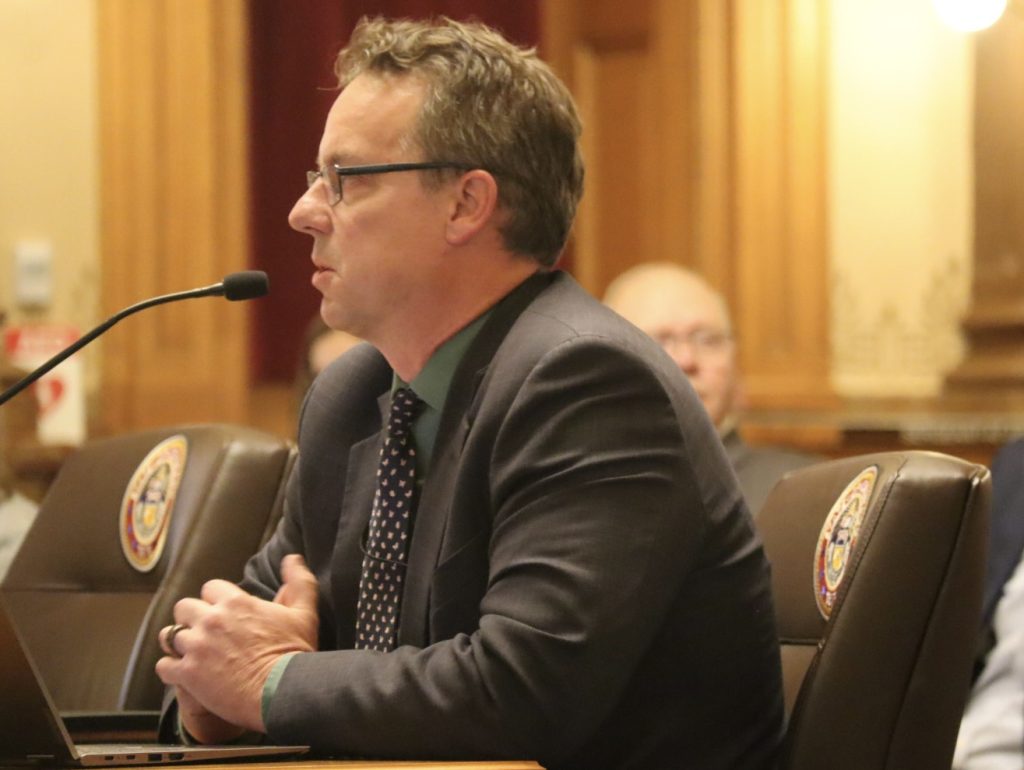
Colorado Parks and Wildlife Director Jeff Davis said he supported the amendment to SB 5, adding that not being able to move forward with another wolf release would’ve impeded the overall program and the agency’s obligation to voters.
The 2020 ballot measure required Parks and Wildlife to establish a “self-sustaining” wolf population. The agency’s management plan believes it could take releasing 30 to 50 wolves over a three- to five-year period for that to happen.
To date, they’ve reintroduced 25 wolves, with another release planned for January 2026.
Ten wolves have died or been killed since reintroduction began. Nine of those were wolves that were brought to Colorado, while one was a year-old pup born to a pack, which was killed by Parks and Wildlife officials. The wolf was connected to multiple livestock attacks in just over a week in Pitkin County, which met the agency’s definition of “chronic depredation,” which can warrant lethal action.
“I do believe it’s really important to put one more round of 15 animals out,” Davis said. “This wolf restoration is messy, and there’s no way to go around it; we have to go through it.”
The bill’s amendment was brought by Sen. Matt Ball, D-Denver, to gain the support of Gov. Jared Polis, who vetoed a past legislative attempt to delay the program’s start in 2023 and sharply criticized SB 5 as a “backdoor effort to prevent the will of the voters” earlier this week.
Roberts said he believes that with the amendment, “it means the governor will sign the bill if it gets to his desk.”
“There’s a compromise here, one that I don’t think makes either side perfectly happy, but I think that’s one of the definitions of compromise,” Roberts said.
A spokesperson for Polis’ office did not immediately respond to a request for comment.
Registration for ASK — AVSC’s winter recreational programming — begins Sunday, Aug. 24
Winter is already on the mind and the Aspen Valley Ski and Snowboard Club is ready to get the local youth signed up for this season’s frozen fun.

Support Local Journalism

Support Local Journalism
Readers around Glenwood Springs and Garfield County make the Post Independent’s work possible. Your financial contribution supports our efforts to deliver quality, locally relevant journalism.
Now more than ever, your support is critical to help us keep our community informed about the evolving coronavirus pandemic and the impact it is having locally. Every contribution, however large or small, will make a difference.
Each donation will be used exclusively for the development and creation of increased news coverage.









